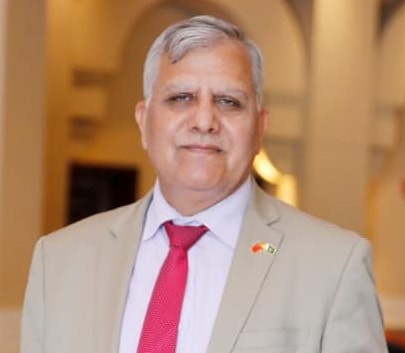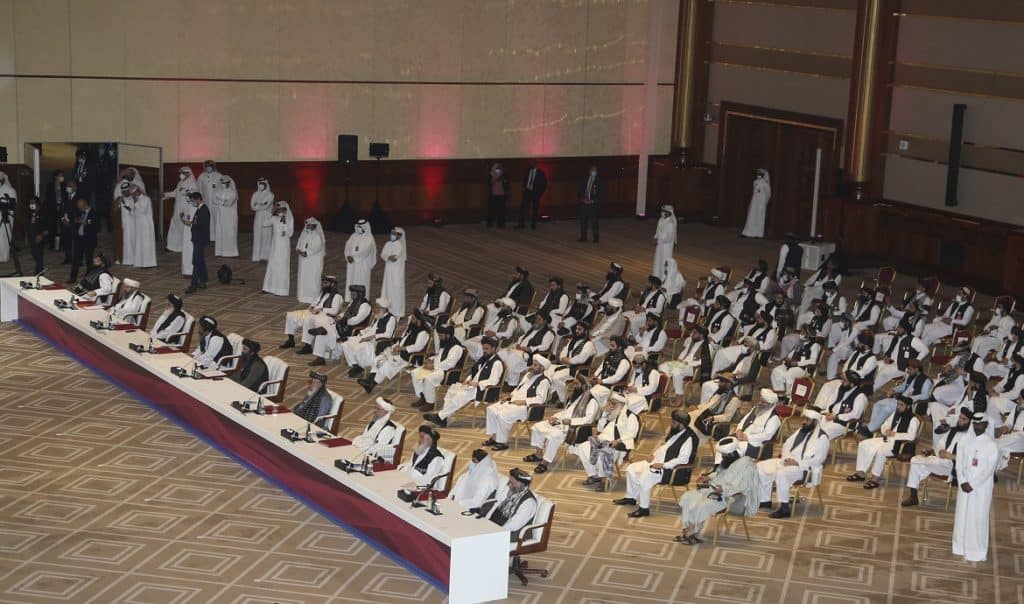By Prof. Engr. Zamir Ahmed Awan
In 19 years of War, it is the first time when the Afghan government and Taliban representatives had reached a preliminary deal to press on with peace talks. The agreement is a real breakthrough and welcomed by Pakistan, the U.S., the U.N., and the global community.

After four decades of bloodshed, the agreement lays out the way forward for further discussion and is considered a significant breakthrough because it will allow negotiators to move on to more substantive issues, including talks on a ceasefire. “The procedure including its preamble of the negotiation has been finalized, and from now on, the negotiation will begin on the agenda,” Nader Nadery, a member of the Afghan Government’s negotiating team, told media. The Taliban spokesman confirmed the same on Twitter.
Pakistan brought the Taliban to a negotiating table, and a series of talks held in Doha, Qatar’s capital. The agreement was reached during the discussions in Doha recently. In Afghanistan, the two sides are still at War, with Taliban attacks on government forces continues unabated. U.S. Special Representative for Afghan Reconciliation Zalmay Khalilzad said that the two sides had agreed on a “three-page agreement codified rules and procedures for their negotiations on a political roadmap and a comprehensive ceasefire.”
“This agreement demonstrates that the negotiating parties can agree on tough issues,” he said on Twitter. Taliban insurgents had refused to agree to a ceasefire during the preliminary stages of talks, despite calls from Western capitals and global bodies, saying that that would be taken up only when the way forward for talks was agreed upon. U.N. envoy for Afghanistan Deborah Lyons welcomed the “positive development” on Twitter, adding that “this breakthrough should be a springboard to reach the peace wanted by all Afghans.”
Last month, an agreement reached between Taliban and government negotiators was held up at the last minute after the insurgents balked at the document’s preamble because it mentioned the Afghan Government by name.
The Taliban refused to refer to the Afghan negotiating team as representatives of the Afghan Government, as they contest the legitimacy of the administration led by President Ashraf Ghani, which they see as a puppet of the United States.
The Taliban were ousted from power in 2001 by U.S.-led forces for refusing to hand over Osama bin Laden, the architect of the Sept. 11 attacks on the United States.
Late on Wednesday, the Ministry of foreign affairs said that Pakistan welcomed the announcement regarding the agreement between Afghan parties reached in Doha on the rules and procedures.
Afghan War was the primary cause of instability in the region and hindrance in the developments. Despite a landlocked country, Afghanistan is situated at an important trade route connecting Central Asia, East Asia, Eurasia, with South Asia, China, and the Arabian Oceans.
With the peace and stability in Afghanistan, all neighboring countries will prosper. Afghan stability is vital for the region as well as global stability.
Afghanistan was a sovereign country for centuries and had been surviving independently. Due to foreign interference, for the last four decades has been destabilized. This peace deal between the Afghan Government and the Taliban will pave the way for peace and stability. It will also open ways for Afghan refugees to return to their homeland. There are an estimated 5 million Afghan refugees worldwide, with the highest concentration in Pakistan, estimated at 3 million.
After the withdrawal of foreign troops, the Afghans may find a solution acceptable to all factions and move toward permanent peace. Foreign intervention was the primary cause of bloodshed and instability in Afghanistan.
Author: Prof. Engr. Zamir Ahmed Awan, Sinologist (ex-Diplomat), Editor, Analyst, Non-Resident Fellow of CCG (Center for China and Globalization), National University of Sciences and Technology (NUST), Islamabad, Pakistan.
(The views expressed in this article belong only to the author and do not necessarily reflect the editorial policy or views of World Geostrategic Insights).
Image Credit: Hussein Sayed/AP







